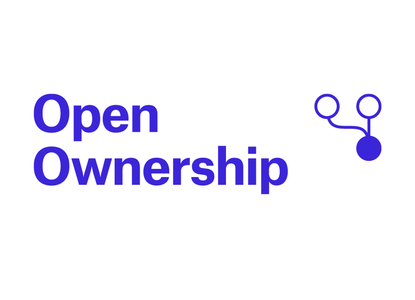The Open Ownership retreat 2024
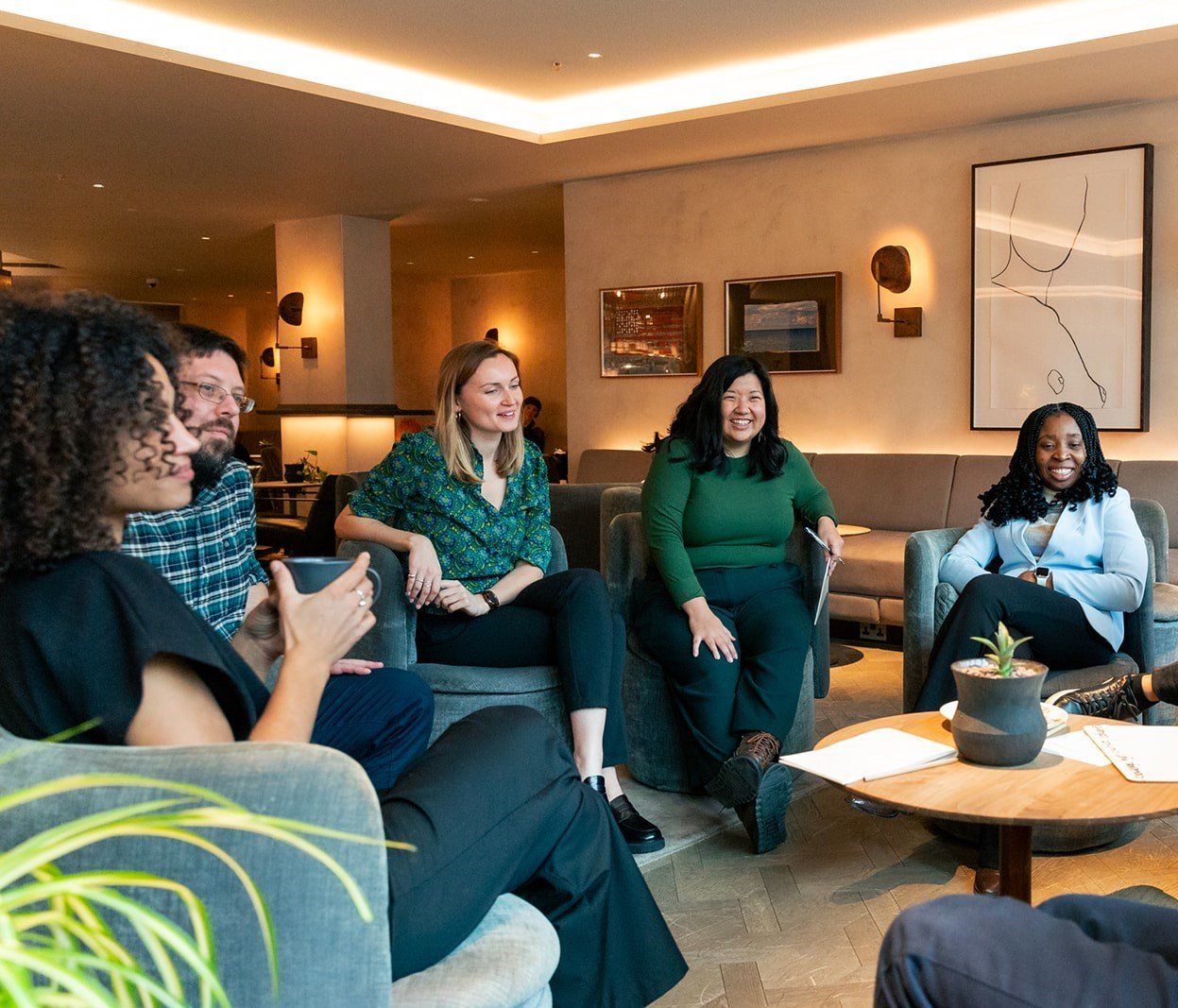
From left to right: Team members Julie Rialet, facilitator Tim Davies, Phoebe Williams, Denise Yap, and Onyi Ough at the Open Ownership retreat
Like many virtual organisations (I don’t like the term "remote" as it neither describes quite where we all are physically nor how we work together), Open Ownership gets few opportunities to have everyone in the team together at once. We are privileged to be able to do this just once a year though and came together in London at the end of January to think, plan and better understand one another.
Only being able to meet together once a year does mean that you notice how much things have changed. Year after year, we are a bigger team, doing more work in more countries, and learning a lot more about what beneficial ownership (BO) reform can deliver. The community of interest in good BO reform has grown significantly as well, not just because more countries are doing the work, but also because of the range of actors – businesses, international organisations, civil society, media and academics – all now engaged in thinking about and working on how to implement it well. It is great to see these much broader interests and ideas coming to the table.
Just a few years ago, the impetus for reform was almost entirely found within anti-money laundering circles and corporate registry authorities. But now, awareness of the necessity of reform and its value is found across governments (procurement authorities and tax authorities to name a few), and a wide array of non-government actors such as those concerned with governance in the fisheries, mining and energy transition sectors.
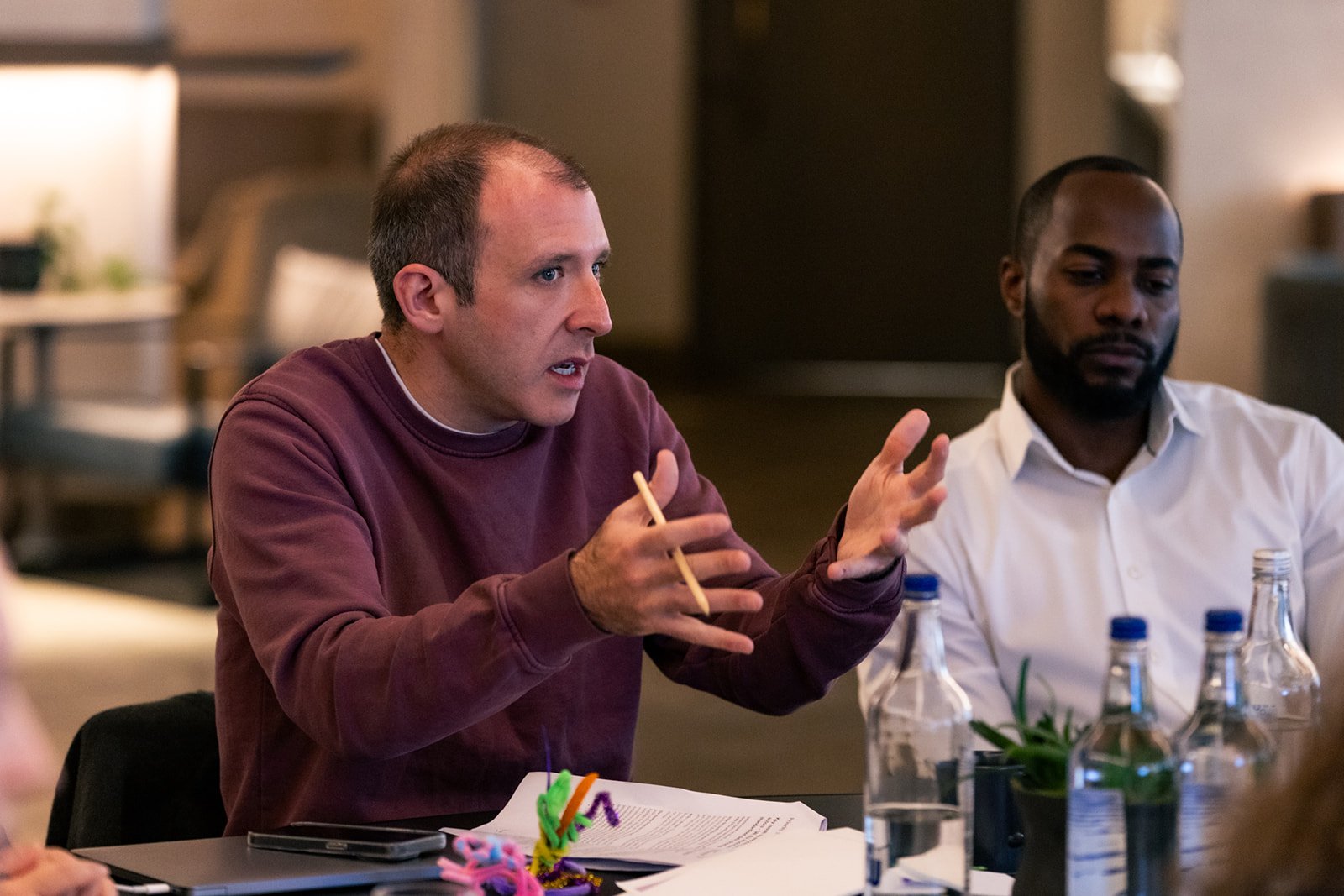
Thom Townsend and Mutale Mukuka
Alongside this, and a lesson from the jurisdictions that have gone through the earlier stages of implementation, is a much more pronounced focus on compliance. Less threateningly, compliance can be thought of as the “use” of the system by businesses, or their representatives. We know that a good part of ensuring businesses can comply with new BO disclosure rules is creating a system that is easy to use. This often, although by no means exclusively, means creating a user-friendly, intelligible online system which is something that makes it easy to comply.
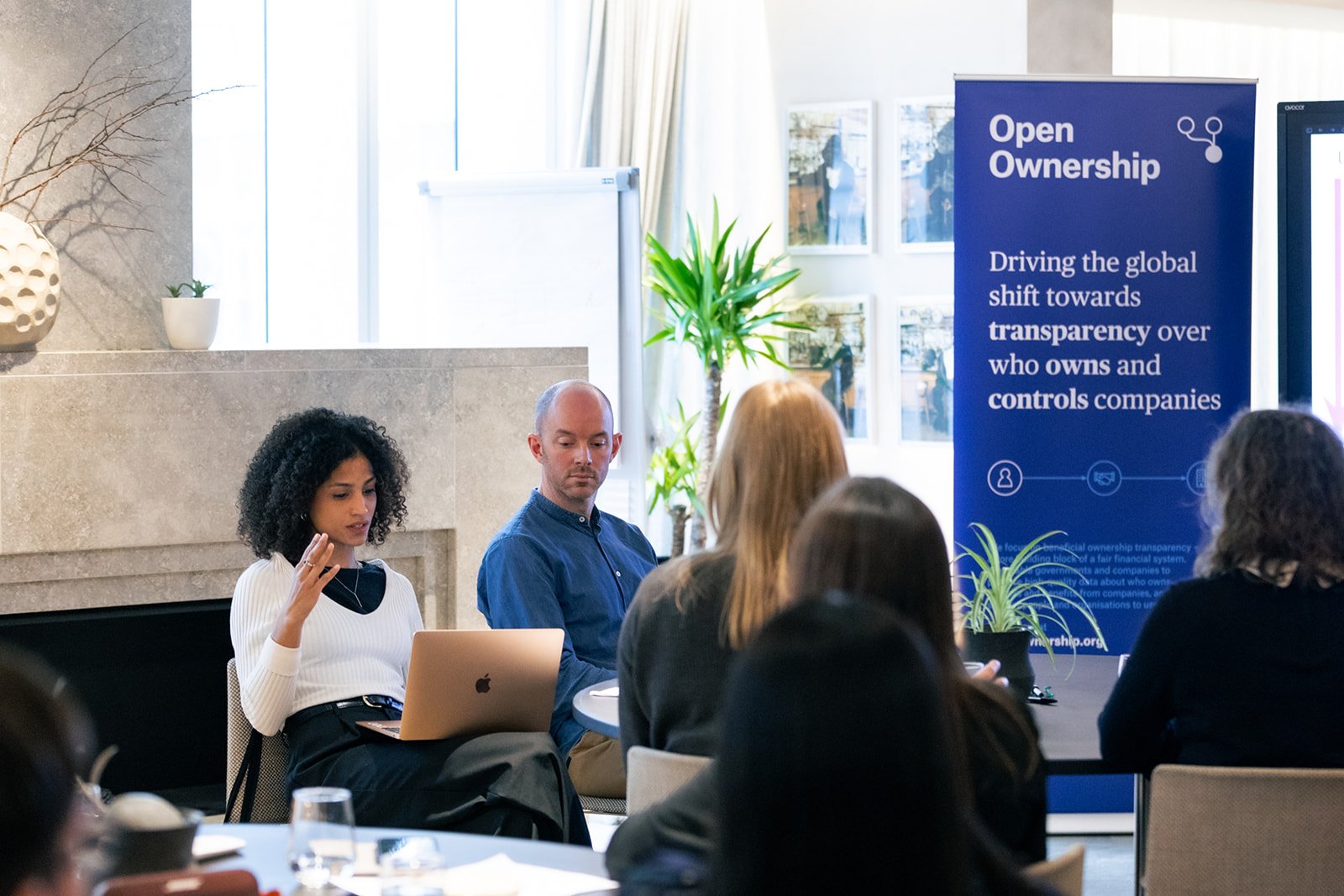
Julie Rialet and Stephen Abbott Pugh presenting to the rest of the OO team
To help us help others to do that work better, we’ve teamed up with Public Digital to help us think about our offer to implementing governments. We want to apply the very latest in good digital service design to our work. Public Digital came along and led us in an inspiring morning of role-playing, fascinating case studies of good national delivery, and a lot of questions. Not least among which are: how do you create the environment where great digital work can happen in government? And how is that best funded?
This retreat though was really about getting to grips with, and planning to meet, our sharpened internal priorities which I talked about here. We want to deliver effective implementation in a small number of countries with whom we work very deeply, drive better use of data by government, and advance the global infrastructure (technology and policy) for truly interoperable BO data. We’ve now got some very clear plans for each of these and we’re beginning to execute them, which is exciting.
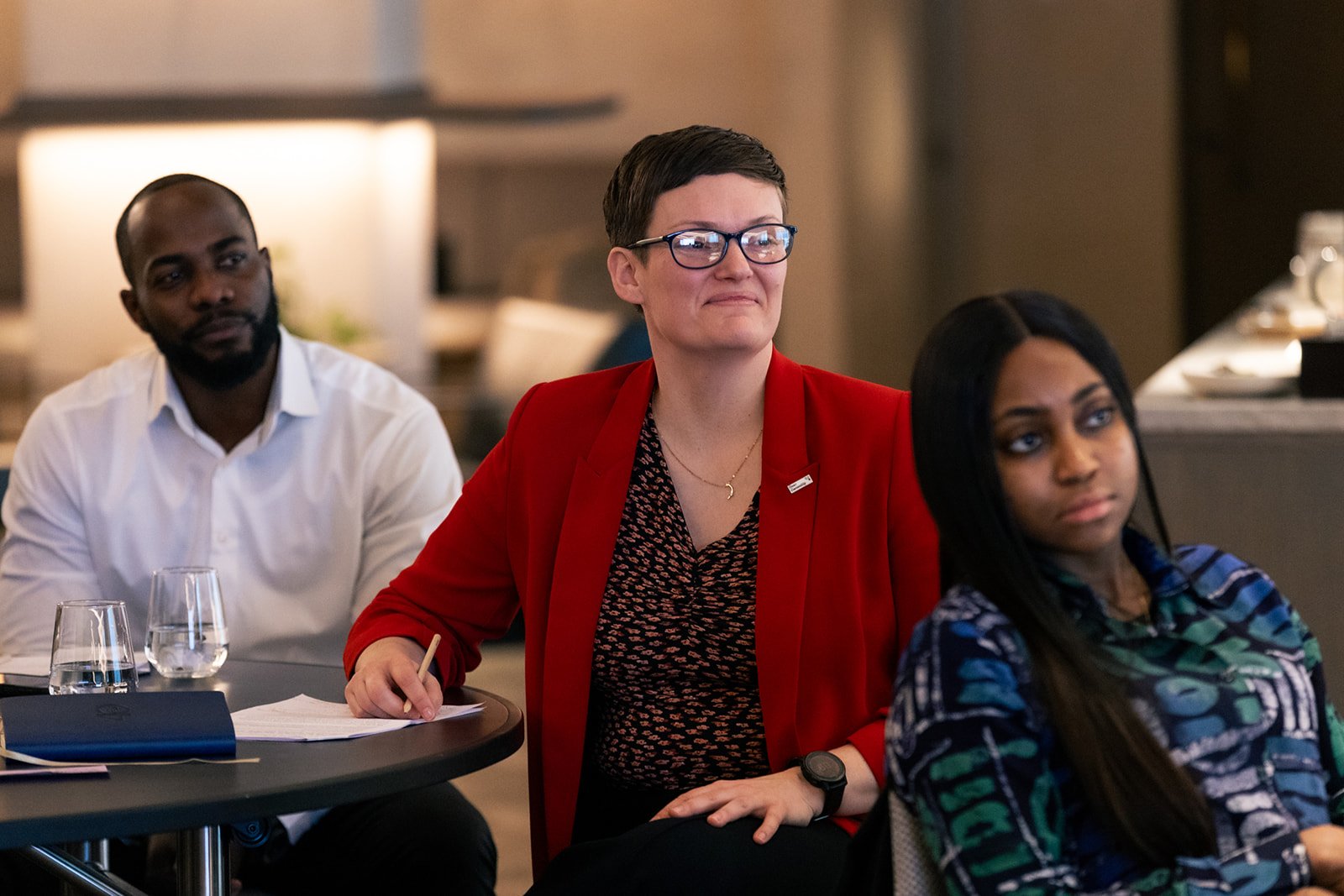
Mutale Mukuka, Louise Russell-Prywata, and Favour Ime
We have a lot to do this year and next, and by the end of 2025, I really want to see a critical mass of countries delivering BO reform well, learning how best to drive compliance, and making use of BO data across all the different policy areas we already know about and, I suspect, many we haven’t yet discovered. Knowing who really owns a company has, since the dawn of legal persons, been essential to a well-governed economy where everyone knows who they’re really dealing with. The stakes have got higher, the complexity of the global trade and financial system has increased, but the need to know who owns what hasn’t changed. We often say BO data in isolation doesn’t tell you very much about the world around it, but without it, you’ll know even less.
Open Ownership is a small organisation, working hard to do big things in an ever-changing space where we must always acknowledge that we don’t have all the answers. To all of our partners and friends around the world that help us learn about how to do this work well every day, thank you. To my excellent team, an even bigger thank you. Can’t wait to see you all face to face next year.
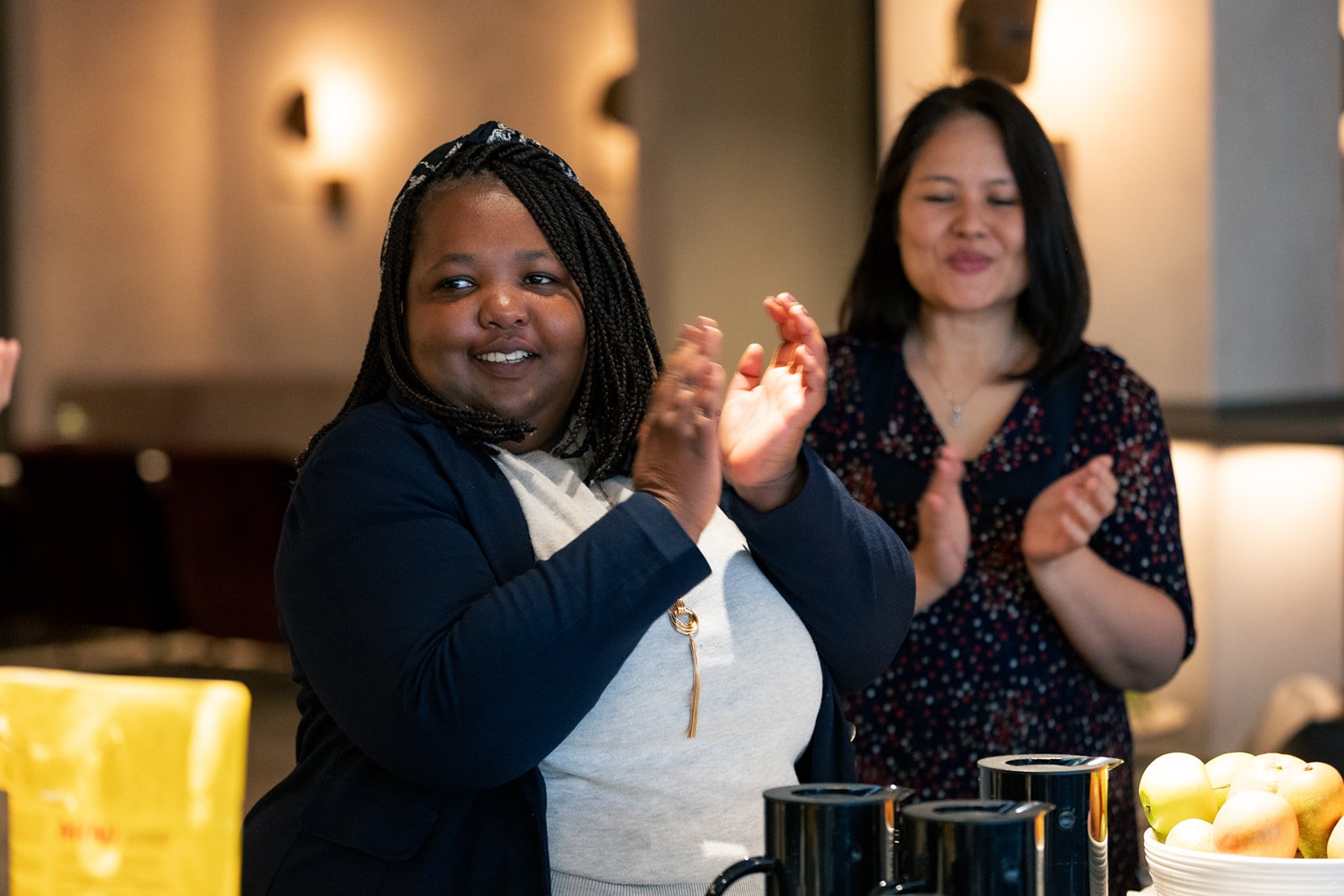
Karabo Rajuili and Emily Manuel
Related articles and publications
Publication type
Blog post
